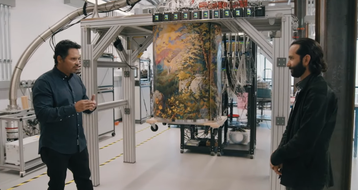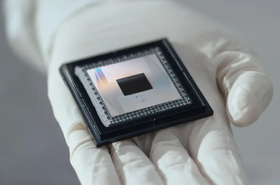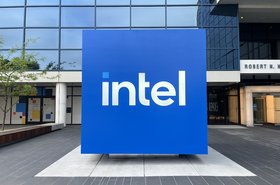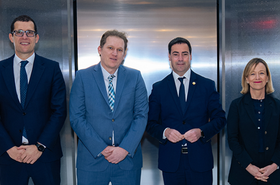The general manager of quantum technologies at Amazon Web Services has left for Google.
Simone Severini spent more than six years at the cloud giant, which is developing its own quantum computers along with offering other companies' systems on its Braket service. He is also a professor of physics of information at UCL.
"Excited to share that I'm starting a new chapter as Distinguished Engineer at Google, based in the Bay Area," Severini said on LinkedIn.
"Looking forward to exploring new challenges, working with the talented teams here, and finding out whether there's life beyond quantum after all."
Severini told DCD that, at Google, he is "looking to contribute wherever my background - in connecting people with different expertise across academia and industry - can be most useful. It’s a chance to explore new directions, still broadly aligned with my interest in computing and its role in discovery."
He added: “After a wonderful journey building AWS’s quantum effort, I felt I had accomplished my mission as a founder.”
We spoke to Severini about his work at AWS earlier this year.
"There are multiple startups that are building their machines and putting them on Braket," he said. "We created a go-to-market channel for them."
However, Severini admitted that the current state of quantum computers was still very nascent.
"To get to 50 logic qubits, where interesting things are going to happen, is not going to be before five years - if we are lucky," he said.
"People are talking about data centers and quantum computers. It's too early to think about that. It's a distraction. When you buy a quantum computer, you're buying a scientific experiment. In three months, it's an old thing.
"Right now, thinking about the shape of a quantum computer? I couldn't care less. I wish there were a quantum computer. It can look like a pyramid, it can look like a pipe. [People might say] 'Oh, but you need a lot of refrigeration.' Fine. [Or they might say] 'this device, you don't need refrigeration.' Fine. Right now, it's not making a difference."
After that five-year-plus development, the end result could be profound: "Then we can do quantum chemistry, so we can probably do ammonia. At the moment, we make it with a lot of natural gas, about two percent of CO2 emissions every year. You could not simulate this with a traditional computer, no matter if you had a billion GPUs. The memory requirement is so gigantic that you would need to harness a galaxy and use it as a computer.
"That's why we need to build the quantum computer. We can build a faster application [with it], maybe optimization, maybe logistics - I don't find that very exciting. The application I find exciting is the applications that unlock something which is truly groundbreaking."
Severini continued: "People today use this term breakthrough too often, right? Every day: 'Oh, breakthrough, breakthrough, breakthrough.' There aren't that many breakthroughs out there. The field, I wish it was faster - maybe it's because I'm an old geezer at this point."




